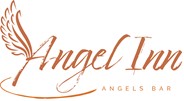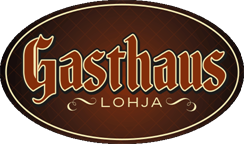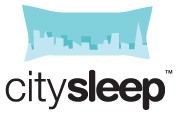The hotel industry is going through a period of unparalleled, irreversible changes that should make it look very different in the next five years compared to how it is now.
Gone are the days when hotels used to hand over clunky metal room keys to guests and scribble details into a heavyweight guest register to record guest information and assign rooms.
To be able to rise to the new technology challenges will require hoteliers to take a different approach.
Operators need to be more data-based focused to identify key customer segments, targeting the right messages across multiple platforms, and shifting more business through direct channels away from indirect ones i.e. OTAs (Online Travel Agents).
Technological advancement in hospitality should at a minimum keep pace with the rise in guest expectations from what they experience in others sectors i.e. retail, e-commerce, etc.
Technology can help businesses in the hospitality industry stay relevant and competitive, reduce the time it takes to get things done, reduce costs, and increase guest satisfaction
Technology is already playing a significant role in the travel lifecycle. From the moment you see a TV ad to book a holiday or when you are served with a remarketing ad on your daily visit to Facebook, the connection with technology to find, book and review your hotel/travel experience is made.
Shifting to direct channels
Lowering distribution costs associated with indirect channels remains a top priority and a constant challenge for hoteliers. Distribution costs are one of the few variable costs that hotels have any control over.
Going forward hotel operators need to be able to leverage direct booking technology. Any room nights that they can shift to their own direct channels will increase the potential to earn higher revenue and reduce the cost of doing business.
Any reduction in the OTA commission costs will go directly to a hotel’s bottom line as profit. Plus, often the booking value of a direct reservation can be higher than that of an OTA booking – they are more likely to book a package or an upgraded room type, as well as add-ons.
OTAs as a channel tend to have the highest cost of sales for hotels, but they have the capacity to boost occupancy and deliver reservations when needed.
A guest that has used an OTA to book their room, may be motivated by price, stay less frequently and not be so interested in engaging directly with a hotel. The value of the OTA lays in their ability to “cast a far wider net” to get your property in front of potential customers in their booking process that you would not have the ability to do.
Technological transformation
Technology continues to transform many industries and the service industry, particularly hospitality is mature and ripe for disruption.
Hospitality is often thought of as an industry that has been slow to adopt new technology.
It’s a mature business sector, one that has been around for many years, and continues to grow steadily through the increase of tourism and a buoyant corporate travel market.
Early-adopters of technology in the industry are often thought of as risk takers, because if a new technology does not become the standard they may end up with unusable systems, that lack the ability to integrate with other parts of their IT infrastructure.
New technology
So new technology and hotels are often caught in a technological vicious circle: if they do not adapt they fail and if they bet on the wrong horse they fail as well.
The good news is that technology has evolved to a point that it is more accessible and affordable with the proliferation of SaaS models and the Cloud. Which means, in case of failure, hotels can limit their exposure to any perceived damage.
Cloud-based solutions, for example, are easier and cheaper to replace than on-premise ones – so the leap of faith is less of a jump and more of deciding on which technology track to follow.
This does not mean that hotels should adopt new technologies just for the sake of it, as technology should be considered as a tool to help deliver product and service differentials.
Technology is no match for the warmth and personality of a member of staff who shows an interest in the welfare of their guests.
It is what the technology allows hotels to do that makes a difference, not just having the technology itself.
The assessment to make is how technology can improve your employee’s quality of work, and the positive impact that they can make on hotel operations or guest experience. But if technology is not guest or employee centric then it is probably not worth having it.
Technology is advancing at a faster pace than ever before, and this is changing both the expectations of guests as well as the way in which the hospitality industry manages its business.
Some of the technology trends are leading to great improvements in the guest stay experience and are making it easier for customers to search, find and book available rooms for a “connected” buying experience.
While other technological advances are saving hoteliers money by changing the way in which critical hotel operational services for example heating controls, Wi-Fi, alarms, lighting, entertainment systems and electronic doors are all common devices that can be connected and controlled in a hotel over a network.
The benefits of technology
- Guests are more likely to recommend hotels that are up-to-date if they integrate into the guest stay experience modern interactive devices.
- Customers trust that a hotel operator will protect their personal data and keep information secure away from unauthorised access.
- Sustainability using technology to save energy saves money and makes friends.
- Marketing automation and CRM enables sales and marketing to grow a business by triggering actions based on business intelligence.
- Using automation for some administrative purposes can save time so that operators can focus on what they do best, being hospitable and raising guest satisfaction.
Leverage technology to grow your share of direct bookings
Happybooking is first and foremost a property management system (PMS). That means they help you with the admin and automate tedious tasks freeing up time for you to focus on a positive customer experience.
On average Happybooking customers can get back up to 10 hours per week – think what you could do with that extra time!
Happybooking have always focused on creating a user-friendly booking system to help property owners improve their revenue performance.
Check out how easy the Happybooking system is, open up a free trial account.
Our guest blogger is John Kennedy. John is a hospitality consultant, dedicated to helping increase profits through marketing, revenue management and efficient operations. www.kennedyandersson.com
Image source: www.pexels.com



